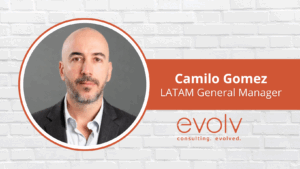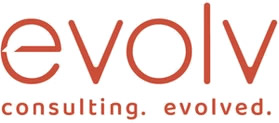In the fast-paced world of business, where time and resources are precious commodities, finding the most efficient and effective approach to implementing a new project is crucial. While the traditional route of issuing a Request for Proposal (RFP) may seem like the logical choice, here at evolv, we challenge you to consider a better way. A way that not only saves you valuable time and money but also enhances your project’s chances of success. Get ready to explore an alternative approach to project implementation, guided by our expertise as the preferred technology and business consulting firm.
The Challenges and Drawbacks of RFPs:
- The Burden of Preparation:
Creating an RFP demands meticulous attention to detail, requiring an exhaustive compilation of your project’s requirements, objectives, and constraints. The time invested in crafting a comprehensive RFP can delay your project’s kick-off and hinder your organization’s agility in responding to rapidly changing market dynamics.
- Paperwork Overload and Vendor Coordination:
Once your RFP is public, the undoubtable paperwork “flood” begins. Managing responses, clarifying doubts, and aligning multiple vendors with your vision becomes an overwhelming juggling act, diverting focus from strategic tasks.
- Communication Fatigue:
Expect an avalanche of communication back and forth between your team and the vendors. This continuous exchange often involves repeating the same information and clarifications, leading to communication fatigue and hampering efficiency.
- Limited Vendor Understanding:
Vendors, no matter how well-versed in their domain, often struggle to truly comprehend your organization’s unique needs as well as you do, especially within the limited amount of time and resources that are available during the RFP process. Relying solely on their understanding might lead to solutions that don’t align with your long-term goals.
- The Low-Cost Temptation:
Choosing the lowest-cost option might seem like a savvy financial move, but it can be a deceptive trap. Often, these budget-friendly proposals might lack the technical depth needed to execute your project effectively, causing costly delays and rework down the line.
- The Change Order Carousel:
It’s not uncommon for projects that start with RFPs to spiral into a seemingly endless cycle of change orders. As your project unfolds, unforeseen complexities arise, leading to additional costs and timeline extensions that were never part of the original plan.
- Deceptive Scope Manipulation:
Vendors keen on winning the project might underbid or intentionally omit crucial aspects of the project’s scope, only to reveal them later through change orders, leaving you feeling cornered and financially strained.
As experts in the industry, evolv recognizes the challenges and drawbacks of RFPs, which is why we proudly offer our “fresh” approach. Our focus is on prioritizing efficiency, fostering collaboration, and gaining a holistic understanding of your organization’s unique needs. By embracing this innovative approach, our clients are empowered to navigate the complexities of project implementation with confidence, knowing that they have a dedicated partner fully committed to their desired success.
A More Effective Path Forward: The Workshop Approach
Navigating the RFP process can often be a challenging task. However, a more personalized approach tailored to your organization’s unique needs is a beneficial alternative. One such method is through workshops that focus on collective strategy development, phased roadmaps, and execution strategies. Here’s how this approach may prove advantageous:
- Uncovering the True Need: Workshops provide a platform to delve into your organization’s challenges, goals, and aspirations at a deeper level. By fostering close collaboration with your team, it’s possible to uncover insights that might not surface during the regular RFP process, leading to more refined solutions.
- Precise Roadmap and Estimates: With a thorough understanding of your needs, a phased roadmap can be designed, providing you with a more accurate representation of cost estimates and timelines. No surprises, no hidden costs—just a clear path forward.
- Minimizing Risk: This approach also offers the opportunity to evaluate potential partners before committing to a long-term relationship. Through a workshop, you can assess alignment with your objectives, reducing the risk of a mismatched partnership. This hands-on experience establishes trust and confidence, ensuring informed decisions and mitigating the risk of costly mistakes.
- Holistic Perspective: Collaboration in this context enables the crafting of solutions that align not just with immediate project requirements but also resonate with your organization’s long-term vision.
In summary, while the RFP process may seem enticing, the frustrations and pitfalls that accompany it can sometimes outweigh the benefits. A workshop approach can offer a more collaborative, efficient, and risk-reducing way to create a tailored strategy and execution plan. Partnering with a business & technology consulting firm like evolv, preferred for its expertise in these workshops, can help conserve time, money, and resources while ensuring a smoother journey towards achieving your project goals. Consider this alternative and let’s embark on a journey of transformation together.




